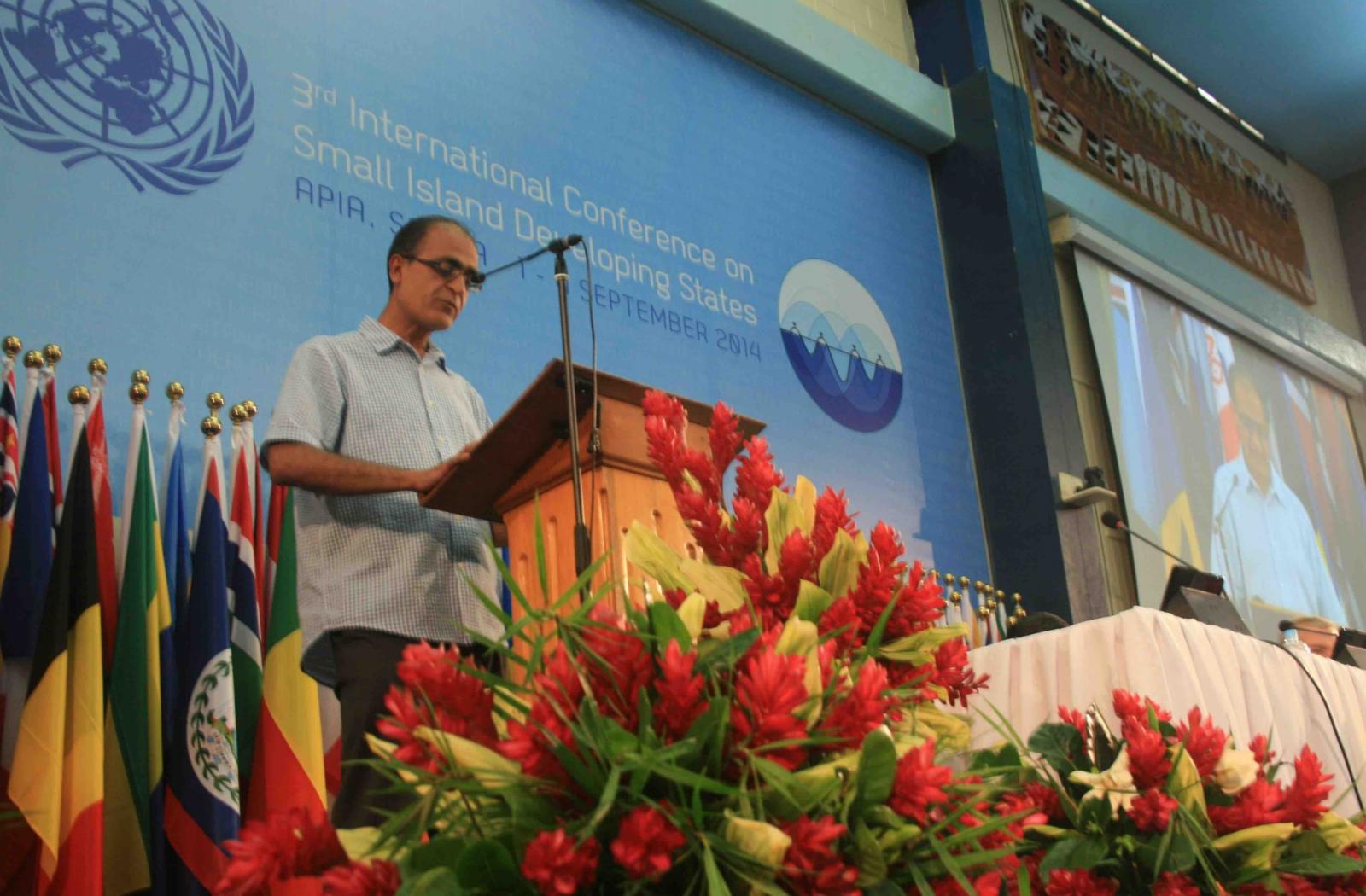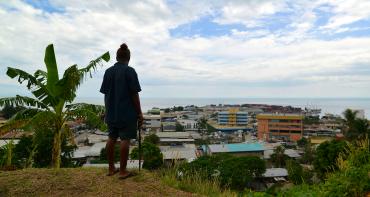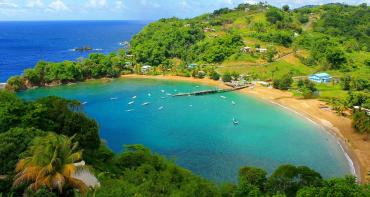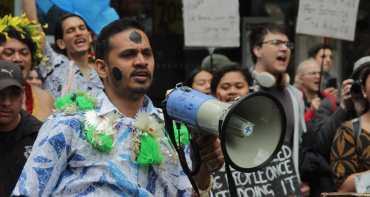Address by Commonwealth Deputy Secretary-General Deodat Maharaj to the Plenary Session of the Third International Conference on Small Island Developing States

Excellencies, Distinguished Ministers and Delegates, Ladies and Gentlemen,
On behalf of the Commonwealth, I offer our sincere gratitude and appreciation to the Government of Samoa and its people for their warm hospitality and their generosity in hosting this conference, and to the United Nations for its coordinating role.
This meeting is timely. We are conscious that in many areas there has been insufficient progress in achieving the Millennium Development Goals. Despite immense efforts, most Small Island Developing States face daunting obstacles in making sustainable progress. Some factors are inherent to size and geographical location. Others, such as climate change and economic shocks, are externally generated yet lead to deep economic and social consequences. These can be overwhelming for small states. We need collectively to find the answers.
To adapt and make headway calls for financial and institutional support, the Commonwealth is therefore working through practical assistance and partnerships to help Small Island Developing States. For example, we are working to access and unlock climate financing, and for a strong deal in 2015 under the UNFCCC. Other efforts being shared at this Conference include a Climate Resilience Islands Partnership with regional organisations, and a Commonwealth Climate Finance and Skills Hub based in Mauritius and operating as a virtual network. We also launched a new Commonwealth publication this week entitled, “Building the Resilience of Small States: The Revised Framework”.
The emerging concept of the Blue Economy has been embraced by many Small Island Developing States as a mechanism to realise sustainable economic development around an ocean-based economy. However, while a number of models describing the blue – or ocean - economy currently exist, the requirement is to convert the models into practical action and tangible economic growth.
To this end, the Commonwealth has established a strategic partnership with the Secretariat of the Nordic Council of Ministers under Iceland, its incoming Chair. This partnership seeks to provide practical ways to assist small ocean-based economies to diversify through sustainable utilisation of ocean resources, notwithstanding their limited institutional and investment capacities.
The heavy and persistent debt burden that many SIDS bear should also be a particular concern. Through thought leadership, the Commonwealth urges deeper understanding of the root causes of debt, and for a significant shift in thinking on existing mechanisms. Innovative Commonwealth approaches, including concepts of resilience and vulnerability, debt-for-nature swaps, and counter-cyclical loans, can form part of a strategic approach to assist SIDS.
Development finance is critical, and yet with graduation many SIDS face limited access to concessional resources. This further impedes development prospects - a reality of which our hosts here in Samoa are acutely aware. While we applaud progress made, we should be mindful of the need for continuing support.
The empowerment of women and of young people is central to realising the development potential of SIDS. Given the significant demographic youth bulge, in particular, it is vital for SIDS, supported by development partners, to engage in practical action that capitalises on often unrealised sources of potential innovation and social leadership.
In discussions on the Post-2015 Development Agenda, Commonwealth member states have promoted the value of a specific youth-focused goal to help ensure that young people are equipped and positioned to contribute to all aspects of nation-building, employment creation and social and economic advancement. The Commonwealth is committed to putting young people at the centre of development, through initiatives such the Commonwealth Youth Awards, that highlight excellence and the efforts of young people in driving sustainable change; the creation of the Commonwealth Youth Council – the largest in the world; and, the development of the Youth Development Index, also a global first.
Strong societies and resilient economies need firm foundations. Working for the future of small states within an equitable global system is also crucial. To promote this is a Commonwealth brand strength and expresses our commitment to SIDS. In shaping the new Post-2015 global development agenda, the goals and targets set must recognise the particular and long term vulnerabilities of SIDS, and support them in building for futures that serve their citizens through growth and are robust and sustainable.
Continued progress depends upon national effort strengthened through collective support, strategic orientation and well-chosen partnerships. The Commonwealth is committed to working in collaboration with the wider global community through partners such as the UN and regional organisations, drawing on the full extent of our own networks of governments, professional organisations and civil society bodies, some of whom are present here, representing education, local government, and telecommunications.
Through cooperative and coordinated effort, we can make a major contribution to advancing the economic prosperity and sustainable development of SIDS. We look forward to advancing together at this conference and in the years ahead.



